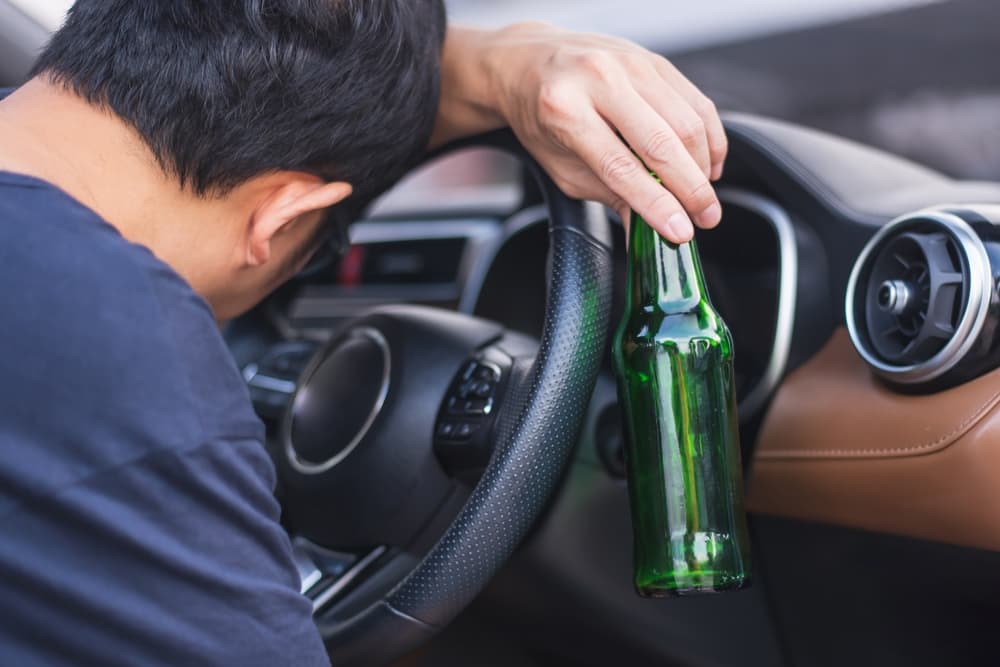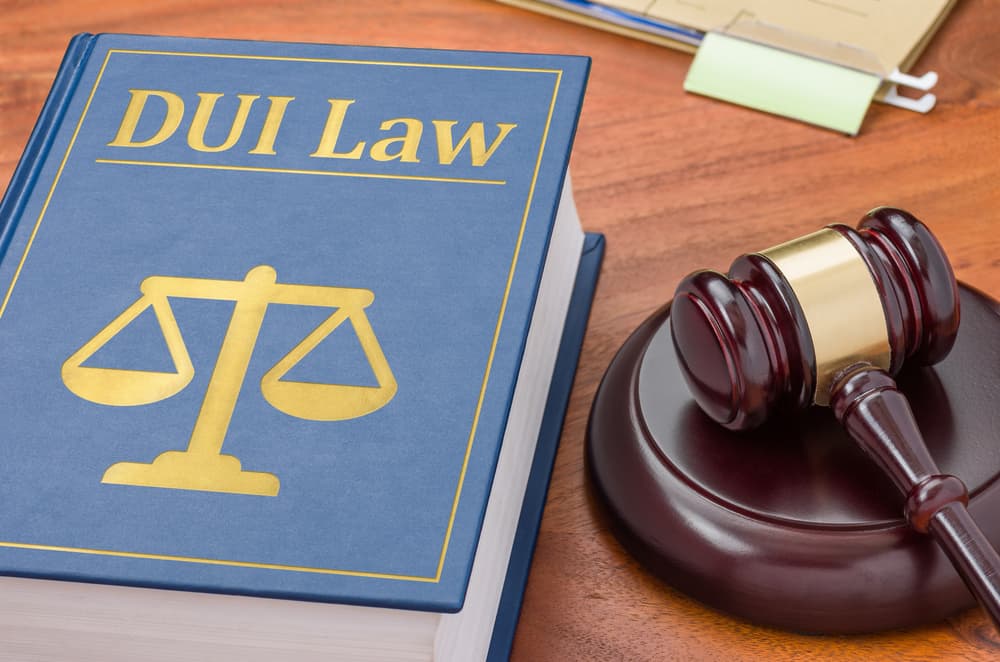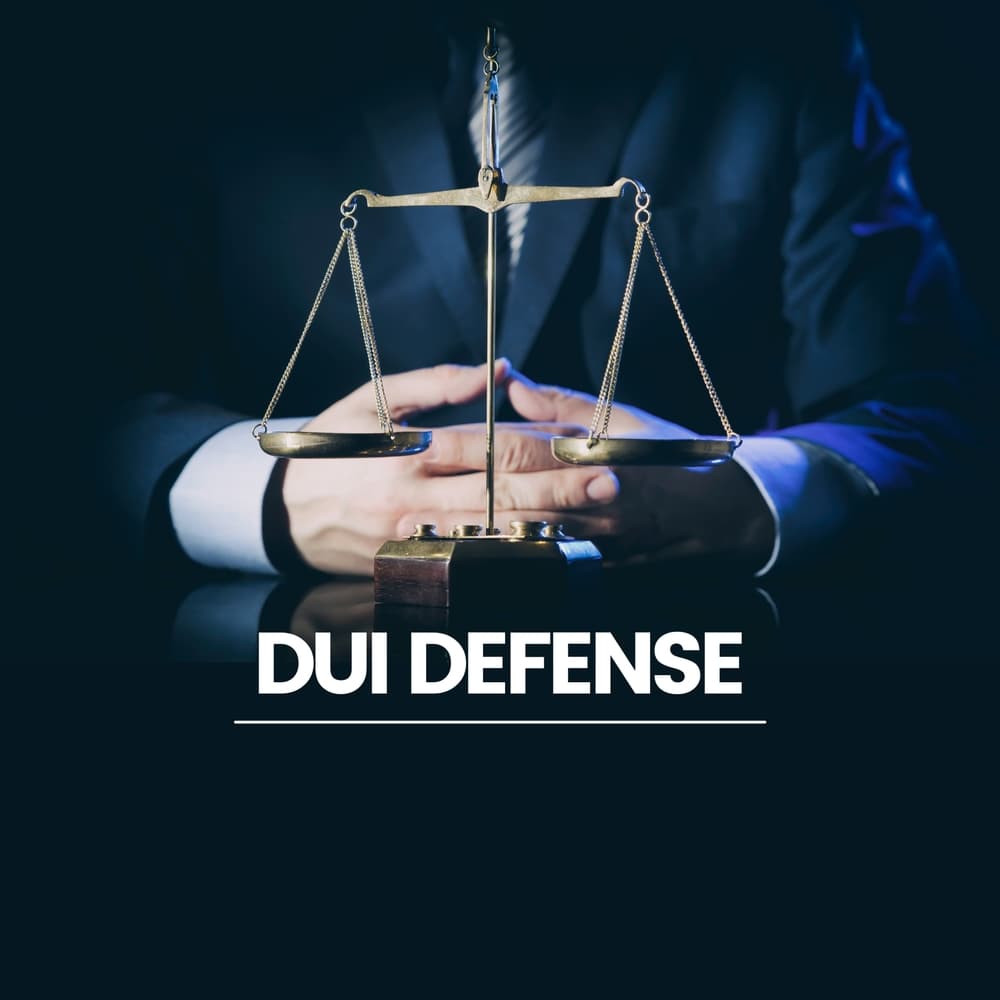A driving under the influence (DUI) charge involving an accident occurs when a driver under the influence of alcohol or drugs causes a collision. The penalties for a DUI conviction can be severe, including fines, license suspension, mandatory alcohol education programs, and possible jail time. If the accident results in injury or property damage, the penalties can escalate significantly.
A DUI defense lawyer can help by reviewing evidence, negotiating plea deals, and presenting a strong defense to challenge the charges. They can also advocate for reduced penalties or alternatives to incarceration, focusing on lessening the effects of the incident on your life.
Elements of Proof in a DUI Case Involving an Accident
In a DUI case involving an accident, the prosecution has several key elements to prove to secure a conviction.
- First, the prosecution must establish that the accused driver (i.e. the defendant) was operating a vehicle. This means demonstrating that the defendant was in control of a vehicle at the time of the accident.
- Next, the prosecution must establish that the driver was under the influence of alcohol or drugs. This typically involves showing that the driver had a blood alcohol concentration (BAC) of 0.08 percent or higher, which is the legal limit. To do this, they may present evidence from breathalyzer tests, blood tests, or field sobriety tests by law enforcement at the scene. If the tests indicate impairment, this can strongly support the prosecution’s case.
- Additionally, the prosecution needs to demonstrate that the defendant’s impairment was a direct cause of the accident. This involves linking the driver’s state of intoxication to the actions that led to the crash. For instance, if the driver was speeding, weaving in and out of lanes, or failing to obey traffic signals, these behaviors can suggest that impairment played a significant role in the accident.
- Furthermore, the prosecution must show that the accident resulted in some level of harm. This can include property damage, injuries to other individuals, or even fatalities. The extent of the damage can influence the severity of the charges, such as whether it is a misdemeanor or felony DUI.
If the prosecutor cannot establish each one of these elements beyond a reasonable doubt, they will be unable to secure a conviction against the defendant.
Potential Penalties for DUIs Involving Accidents

A conviction for a DUI involving an accident can lead to severe penalties, which vary based on the jurisdiction, the specifics of the case, and the defendant’s prior record.
- One of the most significant penalties is the imposition of fines. For a DUI involving an accident, fines can range widely, often starting at several hundred dollars and potentially reaching thousands. In cases where injuries occurred, or significant property damage resulted, the fines may be considerably higher. Courts may also impose restitution payments to compensate victims for medical expenses or property repairs.
- Another major consequence is jail time. Unlike a standard DUI, a conviction for DUI with an accident can lead to more severe sentences. First-time offenders may face a few days to several months in jail. However, if the accident resulted in injury or death, the penalties can escalate significantly, potentially resulting in years of incarceration. Repeat offenders usually face even harsher sentences, reflecting their history of reckless behavior.
- License suspension is also a common penalty. After a DUI conviction, a driver’s license may be revoked for a designated period. This can range from several months to several years, depending on the severity of the offense and the state laws. Losing driving privileges can create significant challenges, particularly for individuals who rely on their vehicle for work or family responsibilities.
- In addition to jail time and fines, many jurisdictions require individuals convicted of DUI to complete substance abuse programs or alcohol education courses. These programs aim to address the underlying issues related to alcohol use and help prevent future offenses. Successfully completing these programs may also affect sentencing, sometimes leading to reduced penalties.
- Community service is another potential consequence. Courts may mandate a certain number of hours of community service – particularly if the DUI resulted in an accident with injuries. This serves as a way for the offender to give back to the community while acknowledging the severity of their actions.
- Finally, a DUI conviction can have long-term repercussions beyond legal penalties. It may lead to increased insurance rates, difficulty finding employment, and a permanent criminal record, which can affect future opportunities.
Overall, the penalties for a DUI involving an accident are serious and can have lasting effects on an individual’s life.
Successfully Defending Against a DUI Charge Where an Accident is Involved

When facing a DUI charge involving an accident, defendants often rely on various legal defenses to challenge the prosecution’s case.
- One of the most common defenses is the argument of insufficient evidence to prove that the defendant was actually impaired at the time of the accident. To secure a DUI conviction, the prosecution must establish that the defendant was under the influence of alcohol or drugs while operating the vehicle. A skilled defense attorney may argue that the blood alcohol concentration (BAC) tests were inaccurate or improperly administered. For instance, if a breathalyzer test was used, the defense may point out that the device was not calibrated correctly or that the officer failed to follow proper testing protocols. Additionally, they may argue that the defendant had recently consumed alcohol, which had not fully entered the bloodstream by the time of the test, potentially skewing the results.
- Another common defense involves questioning the legality of the traffic stop. If law enforcement did not have reasonable suspicion to stop the vehicle, any evidence obtained during the stop, including field sobriety tests and chemical tests, may be deemed inadmissible in court. If the defense can show that the officer acted outside of legal bounds, it may lead to a dismissal of the charges.
- Mistaken identity is another defense that may be used in DUI cases involving an accident. The defendant may argue that they were not the person driving the vehicle at the time of the accident, suggesting that someone else was behind the wheel. This defense relies heavily on evidence such as witness testimony or video footage that can confirm who was driving.
- Additionally, the defense may argue that the accident resulted from factors unrelated to intoxication. For example, they may present evidence that the accident was due to mechanical failure, bad weather, or another driver’s negligence. By demonstrating that the defendant’s actions were not the primary cause of the accident, the defense can weaken the prosecution’s case.
- Another strategy may involve challenging the prosecution’s claims about the defendant’s behavior before or after the accident. The defense may argue that the defendant exhibited no signs of impairment, such as slurred speech or poor coordination, prior to the accident.
A strong defense can make a significant difference in the outcome of a DUI case, potentially leading to reduced charges or even a dismissal.
Legal Options for DUI Charges Involving Accidents
In a DUI case involving an accident, defendants have several important legal options, each with its own implications. Two primary choices are accepting a plea deal or taking the case to trial. Understanding these options is important for making informed decisions.
Plea Deal

Accepting a plea deal is one of the most common routes in DUI cases. In this scenario, the defendant agrees to plead guilty or no contest to a lesser charge in exchange for reduced penalties. For instance, instead of facing a DUI charge that can lead to severe fines and jail time, a defendant may negotiate for a lesser offense, such as reckless driving. This option can significantly minimize the consequences and provide more certainty regarding the outcome.
Plea deals also help to avoid the unpredictability of a trial. Trials can be lengthy and stressful, and there’s always a risk of a harsher sentence if the jury finds the defendant guilty. By accepting a plea deal, defendants can often negotiate terms such as lower fines, shorter license suspensions, or the possibility of probation instead of jail time.
Taking the Case to Trial
On the other hand, taking the case to trial can be a viable option for defendants who believe they have a strong defense. During a trial, the prosecution must prove beyond a reasonable doubt that the defendant was impaired at the time of the accident. If the defense can effectively challenge the prosecution’s evidence – such as the accuracy of BAC tests, the legality of the traffic stop, or the actual cause of the accident – it may lead to an acquittal.
Trials also provide an opportunity to present evidence and witnesses that support the defendant’s case, allowing for a more thorough examination of the circumstances surrounding the DUI charge. However, trials can be costly and time-consuming, often requiring substantial legal fees and a commitment to lengthy proceedings.
Ultimately, the decision between accepting a plea deal and going to trial depends on various factors, including the strength of the evidence, the potential penalties upon conviction, and the defendant’s personal circumstances.
A qualified criminal defense attorney can determine the best course of action based on the specifics of the case. Each choice carries risks and benefits, and careful consideration is necessary to achieve the most favorable outcome.
How Can a DUI Defense Lawyer Help?

A knowledgeable DUI defense attorney can play a valuable role in navigating a DUI case that involves an accident. Their knowledge and experience can significantly influence the outcome of the case, providing vital support and guidance at every stage.
- First, a skilled attorney understands the intricacies of state DUI laws and procedures. They can thoroughly analyze the circumstances of the case, ensuring that all legal protocols were followed during the arrest and investigation. This includes examining police reports, witness statements, and any evidence collected at the scene. By identifying any discrepancies or potential violations of rights, an attorney can strengthen your case and protect your interests.
- Moreover, an experienced DUI attorney can provide you with a realistic assessment of your situation. They can help you understand the potential consequences you may face, including fines, license suspension, and possible jail time. With this knowledge, you can make informed decisions about how best to proceed, whether that involves negotiating a plea deal or preparing for trial.
- Negotiation skills are another essential aspect of a good DUI defense attorney’s toolkit. They can engage with prosecutors to seek favorable plea agreements or reduced charges. Their familiarity with local court systems and relationships with prosecutors can lead to more advantageous outcomes, potentially minimizing penalties or avoiding a conviction altogether.
- In addition to legal knowledge, a DUI attorney can provide emotional support during what can be a stressful and overwhelming experience. Facing a DUI charge – especially one involving an accident – can be daunting. A knowledgeable attorney can help alleviate some of this stress by managing the legal proceedings and providing clear guidance on what to expect. This support can help you feel more confident as you navigate the legal system.
- Furthermore, a DUI defense lawyer can coordinate expert witnesses if necessary. In cases involving accidents, they may work with accident reconstruction specialists or substance abuse counselors who can provide valuable insights into the circumstances surrounding the incident. This expert testimony can bolster your case and provide a more comprehensive view of the situation.
- Finally, having a knowledgeable DUI defense attorney can significantly affect your long-term future. A conviction may have lasting effects on employment opportunities, insurance rates, and personal reputation. A skilled attorney will work diligently to protect your rights and strive for the best possible outcome, helping to lessen the potential negative effects of your DUI charge.
Speak with an Experienced Criminal Defense Attorney Right Away
If you are currently facing a DUI charge that involves a traffic accident, you should seek out experienced legal representation right away. A knowledgeable Criminal defense lawyer can handle every step of your case, defend you in court, or pursue a favorable plea deal from the state prosecutor handling your case. Your lawyer will do everything they can to resolve your case in a way that’s favorable to you.